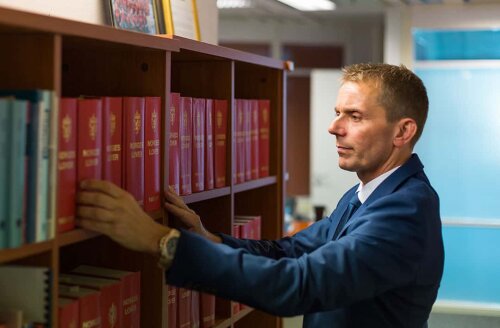Best Child Custody Lawyers in Norway
Share your needs with us, get contacted by law firms.
Free. Takes 2 min.
Free Guide to Hiring a Family Lawyer
Or refine your search by selecting a city:
List of the best lawyers in Norway
About Child Custody Law in Norway
Child custody law in Norway is primarily concerned with ensuring the best interests of the child in cases of parental separation. Custody arrangements can either be sole or joint, and decisions are made based on various factors including the well-being, safety, and the living conditions suitable for the child. Norwegian law prioritizes the child's right to maintain a relationship with both parents, provided that it supports the child's welfare. The parents can often agree on custody arrangements, but if disputes occur, the court intervention may become necessary.
Why You May Need a Lawyer
While many child custody arrangements are settled amicably between parents, there are situations that warrant the expertise of a lawyer. Some common scenarios include disagreements over custody arrangements, allegations of abuse or neglect, relocation issues, and challenges in modifying existing custody orders. A lawyer can provide legal advice, represent your interests in court, and ensure that the agreements comply with Norwegian law and serve the best interests of the child.
Local Laws Overview
Norwegian law regarding child custody is guided by the Children Act, which emphasizes the best interest of the child as the primary concern. Key aspects include:
- The right of the child to be heard in matters affecting them if they are capable of forming their own views.
- The preference for joint custody, allowing both parents to share decision-making responsibilities, unless it's not in the child's best interest.
- Regulations regarding international child abduction, protecting children from unlawful removal from Norway.
- Procedures for resolving disputes, which can involve mediation or court intervention.
Frequently Asked Questions
What is the difference between sole and joint custody?
Sole custody means one parent has the primary responsibility for the child's living arrangements and decisions. Joint custody allows both parents to share these responsibilities, often requiring mutual agreement on significant decisions.
How is custody determined in Norway?
Custody is determined based on the best interests of the child, considering factors such as the child’s relationship with each parent, the living situation, and the ability to meet the child’s needs.
Can custody arrangements be changed?
Yes, custody arrangements can be modified if there is a significant change in circumstances or if it is in the best interest of the child to do so.
At what age can a child decide which parent to live with?
While there is no specific age, the views of a child are given more weight as they grow older and more mature. Courts consider a child's opinion if they are capable of forming their own views.
What role does mediation play in custody disputes?
Mediation is used to help parents reach an agreement outside of court. It is often required as a first step before court intervention, aiming to avoid contentious legal battles.
How long does it take to resolve a custody case in court?
The duration varies depending on the complexity of the case and whether it requires a court hearing. Simple cases may resolve in months, while more complex ones can take longer.
What if one parent wants to move abroad with the child?
The relocating parent must obtain consent from the other parent or approval from the court. The decision will be made considering the child's best interests and the reasons for relocation.
Can grandparents seek custody or visitation rights?
Grandparents can seek visitation rights. However, custody would typically only be considered under exceptional circumstances, where it serves the child’s best interest.
Are there consequences for not complying with custody arrangements?
Non-compliance with custody orders can lead to legal consequences, including changes to custody arrangements or fines.
Is legal aid available for custody cases?
Yes, legal aid may be available for those who qualify based on income and the complexity of their case.
Additional Resources
For further assistance, consider contacting the following resources:
- The Norwegian Directorate for Children, Youth and Family Affairs (Bufdir) for guidance on family-related issues.
- The Mediation Service (Familievernkontor) for mediation support during disputes.
- Legal Aid offices (Rettshjelpstiltak) which can provide free or low-cost legal advice.
Next Steps
If you require legal assistance in a child custody matter, consider the following steps:
- Document your concerns and gather any evidence that supports your case.
- Contact a lawyer experienced in Norwegian child custody law for a consultation to discuss your situation.
- Explore mediation options as a potential solution before taking the matter to court.
- Ensure you remain informed about your rights and obligations under Norwegian law.
Lawzana helps you find the best lawyers and law firms in Norway through a curated and pre-screened list of qualified legal professionals. Our platform offers rankings and detailed profiles of attorneys and law firms, allowing you to compare based on practice areas, including Child Custody, experience, and client feedback.
Each profile includes a description of the firm's areas of practice, client reviews, team members and partners, year of establishment, spoken languages, office locations, contact information, social media presence, and any published articles or resources. Most firms on our platform speak English and are experienced in both local and international legal matters.
Get a quote from top-rated law firms in Norway — quickly, securely, and without unnecessary hassle.
Disclaimer:
The information provided on this page is for general informational purposes only and does not constitute legal advice. While we strive to ensure the accuracy and relevance of the content, legal information may change over time, and interpretations of the law can vary. You should always consult with a qualified legal professional for advice specific to your situation.
We disclaim all liability for actions taken or not taken based on the content of this page. If you believe any information is incorrect or outdated, please contact us, and we will review and update it where appropriate.
Browse child custody law firms by city in Norway
Refine your search by selecting a city.















